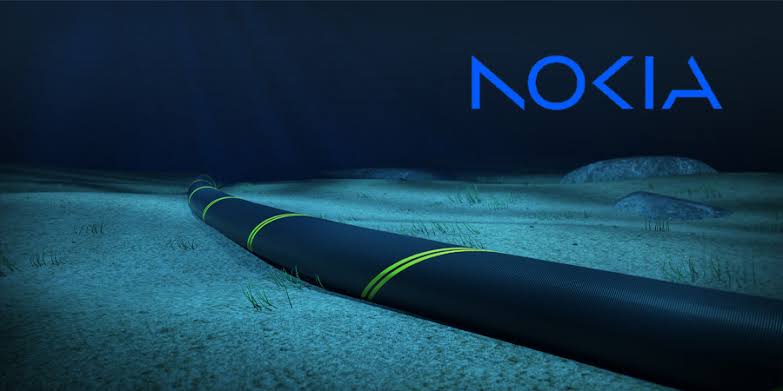On Monday, Nokia announced that it will provide advanced optical technology for the Medusa subsea cable, a landmark project set to connect Europe and North Africa with high-capacity fibre-optic links.
This infrastructure is poised to enhance digital connectivity across the Mediterranean, supporting faster 5G rollouts and expanding cloud services throughout the region.
Medusa Submarine Cable: Bridging Europe and North Africa
The Medusa cable system, owned by AFR-IX Telecom, stretches approximately 8,760 kilometres, making it the longest subsea cable interconnecting the major Mediterranean countries.
It links North African nations like Morocco, Tunisia, Libya, Algeria, and Egypt with six European Union countries, including Portugal, Spain, France, Italy, Greece, and Cyprus.
This linkage is designed as an open-access network, offering telecom providers affordable access to powerful connectivity services.
Miguel Angel Acero, Medusa’s CTO, remarked, “With Nokia’s subsea optical solution, we will be able to deliver greater value to our customers by offering faster, more reliable connectivity at a lower cost, with the flexibility to scale as needs evolve.”
He emphasised the cable’s critical role in creating a more connected and inclusive digital ecosystem across two continents.
Cutting-edge technology powering Medusa’s impact
Leveraging Nokia’s 1830 Global Express (GX) platform and ICE7 coherent optics, the Medusa system can transmit up to 20 terabits per second per fiber pair. This technology supports 24 fiber pairs, enabling vast data throughput with low latency and high energy efficiency.
John Harrington, Nokia’s Senior Vice President for Europe, Middle East, Africa, and Asia-Pacific sales, noted, “Medusa is helping to deliver new, faster, and more reliable connectivity to millions of people, opening the door to greater innovation and deeper integration into the global digital economy.”
Beyond raw speed, the subsea cable is engineered for network resilience with 16 landing points to ensure high availability. This infrastructure is critical to supporting expanding 5G deployments and AI-driven applications across the Mediterranean basin.
According to industry analysis, Medusa will significantly reduce the connectivity gap between Europe’s 90% internet penetration and North Africa’s 60%, fostering economic growth by improving digital access.
The Medusa cable project is a significant step in telecommunications infrastructure and aligns strategically with Europe’s efforts to strengthen its digital sovereignty. Providing an EU-backed alternative to other regional cables reduces reliance on foreign networks, which is increasingly essential in today’s geopolitical climate.
Nokia’s partnership with AFR-IX Telecom for Medusa marks a new chapter in digital integration for Europe and North Africa. It combines advanced optical solutions with a vision to foster economic and social inclusion through improved connectivity.
















